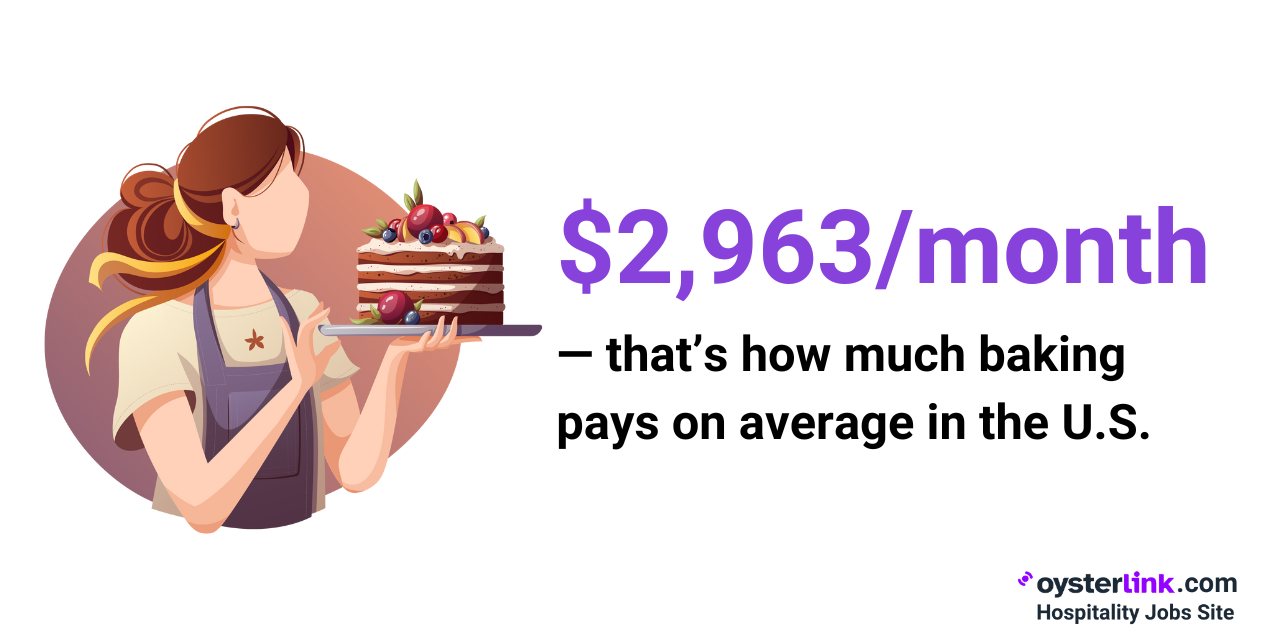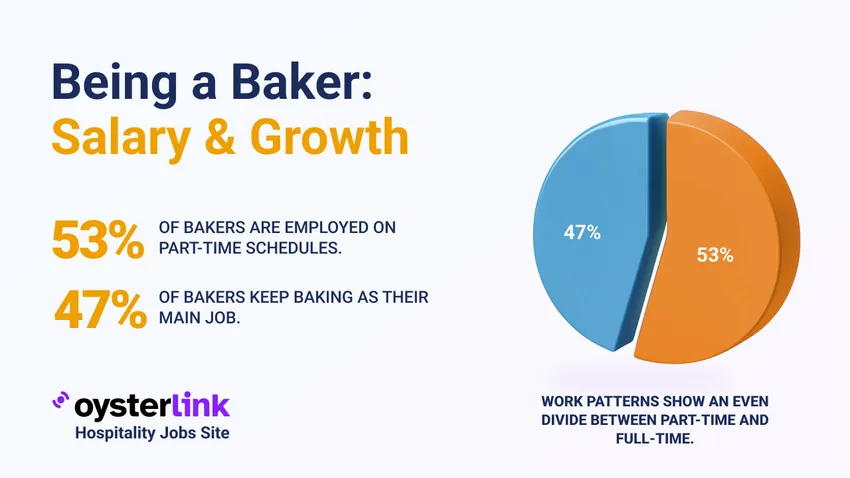Being a Baker is more than mixing dough and frosting cakes — it’s a career built on creativity, precision, and physical effort.
But behind the sweet results are early mornings, long hours on your feet, and pay that starts on the modest side.
Who Is a Baker?
Being a Baker means working in kitchens, bakeries, or restaurants to prepare breads, pastries, and desserts.
Bakers may specialize in artisan breads, pastries, or commercial production. This career suits those who enjoy hands-on work, precision, and creativity in food preparation.
What Does a Baker Do?
A Baker’s daily tasks include measuring ingredients, mixing dough, baking items to perfection, and decorating pastries.
They also manage oven temperatures, track inventory, and ensure consistent quality for every product.
Being a Baker requires attention to detail, time management, and physical stamina.
Advantages of Being a Baker
Baking is more than a job — it’s an art form that allows for personal expression, craftsmanship and the potential for growth.
1. Room for creative expression
With baking, creativity has no limits—you can design cakes, experiment with flavors, and craft pastries that highlight your talent.
2. Hands-on craftsmanship
Unlike screen-heavy modern jobs, baking is hands-on work that blends skill and craft—giving you the pride of seeing the results yourself.
3. Flexible work opportunities
Baking offers diverse employment options. You can work part-time, start a home baking business or pursue full-time roles in restaurants or bakeries.
Cons of Being a Baker
While baking is fulfilling, it comes with challenges that can impact one's work-life balance, physical health and career growth.
1. Inconsistent work schedules
Baking often requires early mornings, late nights, or overnight shifts to ensure fresh products are ready for the day’s customers.
This can mean starting work at 3 a.m. or staying late to finish orders, which may interfere with personal and family life.
2. Physically demanding work
Handling large bags of flour, moving trays in and out of ovens, and kneading dough can lead to fatigue and physical strain.
Over time, this can contribute to back, leg and joint problems. Therefore, physical resilience is essential for long-term success in baking.
3. Pressure from having little to no room for error
Quality and precision are non-negotiable in baking. Customers expect consistent results, and even small errors can ruin entire batches of products.
This constant need for perfection adds pressure, especially during busy seasons or large orders.
4. Limited holidays and family time
Bakers often face their busiest schedules during holidays and special occasions - the very times others are relaxing with loved ones.
Major celebrations can mean long hours in the kitchen to meet demand, and that often comes at the cost of missing personal holidays.
Source: Clockify (using data from U.S. Bureau of Labor Statistics)
5. Salary limitations
Entry-level Bakers typically earn modest wages, and significant salary growth may require years of experience or transitioning to management roles.
While independent Bakers can increase earnings through entrepreneurship, salaried Bakers may face income ceilings, particularly in smaller operations.

Baker Salary and Earnings in the U.S.
On average, Bakers in the U.S. earn $35,550 per year ($2,963 per month), with entry-level roles starting around $24,960 and top earners reaching $46,980 annually.
Hourly and weekly wages average about $17 per hour or $684 per week, but pay is higher in tourist destinations and luxury hotels.
For example, Bakers in Hawaii earn an average of $43,560, while California and New York offer competitive salaries above $40,000.
Conclusion: Is Being a Baker a Worthwhile Career Path?
Baking is more than just a hospitality profession — it’s something that requires a commitment to precision, creativity and hard work.
If you thrive in hands-on, creative environments and are willing to put in the effort, the pros and cons of being a Baker are worth considering.










Loading comments...